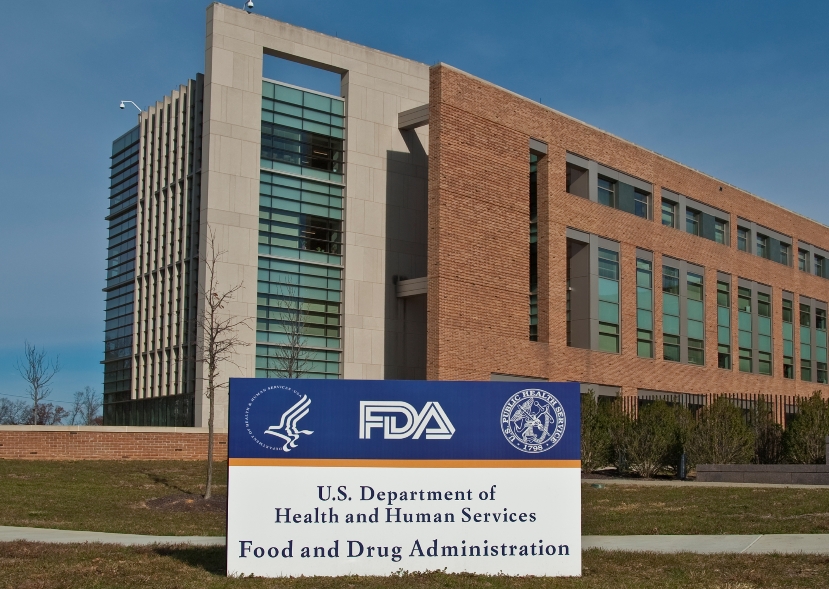Congress allows FDA to ban off-label uses of medical devices
02/27/2023 / By Belle Carter

The U.S. Congress quietly empowered the Food and Drug Administration (FDA) by approving a provision in the omnibus spending bill that would give the agency the ability to ban off-label uses of medical devices.
Doctors are concerned that the new bill would allow the FDA – which is led by non-practicing doctors – to interfere with the physician-patient relationship. They also worry that it could extend the ban to prohibit the off-label use of prescription drugs. The said provision was buried in Sec. 3306, page 3,542 of the 4,155-page omnibus appropriations bill that was signed into law at the end of last year.
Endpoints News Senior Editor Zachary Brennan told WBUR that the federal agency requested the said amendment after a string of court losses. A decision by the U.S. Circuit Court of Appeals for the District of Columbia involved a 2020 final rule in which the FDA banned the use of an electrical stimulation device, only in the treatment of self-injurious behaviors such as head banging and self-biting. The agency didn’t ban other uses of these devices, such as treating addiction.
The court held that the FDA had the power to ban a medical device altogether under Section 36 0f of the Federal Food, Drug, and Cosmetic Act (FDCA) if it poses “an unreasonable and substantial risk of illness or injury.” However, stopping a practitioner from prescribing or using an otherwise approved device for a specific off-label indication would violate another FDCA section, which bars the FDA from regulating the “practice of medicine.”
Some physicians expressed doubt about FDA as it may fail to restrain itself. “FDA lobbyists got congress [sic] to grant the agency the power to ban some uses of medications,” Johns Hopkins medical professor and National Academy of Medicine member Marty Makary tweeted last week.
“That’s truly arrogant to think that the federal government is the one and only one who knows better than the physicians at the state boards of medicine about what good medicine is or what it isn’t,” said Brad Thompson, an attorney at the firm Epstein Becker Green who counsels medical device and drug product companies on FDA regulatory issues.
Joel Zinberg of the Wall Street Journal mirrored Thompson’s sentiment. “This is a problem for many reasons. The statute gives the FDA the power, without any public input, to prevent patients’ access to off-label therapies even though their physicians and their patients have found the treatments to be beneficial or even essential. That was the situation in the Rotenberg case, in which the center and the families of patients had to sue the FDA because the banned devices were often the only effective treatment to keep patients from harming themselves,” he said.
Zinberg further pointed out that allowing the agency to ban certain off-label uses will impair clinical progress. He said off-label use enables physicians to assess their patient’s unique circumstances and use their own evolving scientific knowledge in deciding to try approved products for new indications.
“If the treatment proves useful, formal studies are performed and published. If enough evidence accumulates, the treatment becomes the standard of care, even if the manufacturer did not submit the product for a separate, lengthy and costly FDA review,” he said.
“Secret” provision could target ivermectin as COVID-19 treatment
The provision in the omnibus appropriations bill could have been silently amended and approved to target certain “off-label” medications, including ivermectin.
Ivermectin is an anti-parasite medication initially used in veterinary medicine, but is now approved in humans to treat parasitic infections. It has been recommended by some healthcare providers as a treatment for the Wuhan coronavirus (COVID-19). According to the FDA website, clinical trials assessing ivermectin tablets for the prevention or treatment of COVID-19 in people are ongoing. (Related: REVISIONIST HISTORY: FDA now claims its crusade against ivermectin was just a “recommendation” against taking it.)
“It may be that the clause is specifically directed to forbidding the use of e.g. ivermectin in COVID, for which data are mixed,” David Livermore, retired professor of medical microbiology at the University of East Anglia, told Just the News via an email.
He called it “a disgrace and a dereliction of duty” that the National Institutes of Health (NIH) has yet to “properly study ivermectin either as a treatment or a prophylactic for COVID,” giving the FDA cover to potentially ban such use.
“The feds relied on fake studies to demonize low-cost COVID treatments,” said Yale University epidemiologist Harvey Risch.
Greg Piper, a contributor to Just the News wrote: “The new FDA authority could complicate a lawsuit by doctors that claims the agency effectively banned them from prescribing ivermectin to treat COVID by repeatedly telling the public the award-winning antiviral was dangerous for humans and providing false grounds for medical license investigations.”
Follow FDA.news to know more about the agency’s recent policies and regulations.
Watch the video below that talks about a doctor sent out of a hospital meeting for attesting to ivermectin’s effectiveness in treating coronavirus.
This video is from the TNTVNEWS channel on Brighteon.com.
More related stories:
Florida now allowing doctors to use off-label drugs to treat covid.
STUDY: Ivermectin reduces covid death risk by 92%.
Three doctors sue FDA, HHS for interfering with ivermectin prescription for COVID.
Sources include:
Submit a correction >>
Tagged Under:
alternative cures, alternative medicine, big government, Censored Science, Censorship, conspiracy, covid-19, deception, FDA, ivermectin, Medical Tyranny, recommendation, transparency, Tyranny
This article may contain statements that reflect the opinion of the author




















